|
Disruptive Associate Dean Put “On Leave" Stanford University Law School Dean Jennifer S. Martinez penned a 10-page letter that is a masterful defense of the spirit of the First Amendment in higher education. Along the way, she demonstrates that behavior has consequences. Dean Martinez announced that Associate Dean Tirien Steinbach, who orchestrated student hecklers’ abusive veto of the remarks of federal judge Kyle Duncan, is now “on leave.”
After that traumatic event, Dean Martinez arrived at the classroom where she teaches her constitutional law class. She found her whiteboard covered in fliers. One read: “We, the students in your constitutional law class, are sorry for exercising our 1st Amendment rights.” Some on Twitter made snarky remarks that these law students don’t understand that the First Amendment only restrains the government. It does not cover an elite, private university. But the snarks are wrong. In her letter, Dean Martinez responds that the First Amendment certainly does apply to the university. She cites California’s Leonard Law, a statute that prohibits private colleges from making or enforcing rules that would punish students for speech that would be protected under the First Amendment and California Constitution in a public university. The problem is, for the protestors who shut down the judge’s speech, the students in need of protection would be the members of the Stanford chapter of the Federalist Society who invited the judge to Stanford. That legalistic approach is necessary. After all, Martinez writes, her students are in a law school. But the body of her piece is about the spirit of debate and open exchange that is the heart of a First Amendment society. Martinez distinguishes between an indoor university classroom and an outdoor event, where under settled First Amendment law, boisterous demonstrations might be more acceptable. Students also have a right to silently uphold signs indoors. But they do not have a right to shout down speakers. Central to Martinez’s letter is that “diversity, equity, and inclusion actually means that we must protect free expression of all views.” That principle, apparently shocking to some, includes protection of the conservative Federalist Society. Those who don’t understand this are turning their backs on “rights to freedom of association that civil rights lawyers fought hard in the twentieth century to secure.” Martinez embraces the 1967 Kalven Report, popularly known as the University of Chicago principles. It declares: “The university is the home and sponsor of critics; it is not itself the critic.” Having set the logical premise of her argument, Martinez turns to a powerful peroration, likening the DEI ethos prevalent in today’s campuses to a call for academic and philosophical freedom. “We support diversity, equity, and inclusion when we encourage people in our community to reconsider their own assumptions and potential biases. We support diversity, equity, and inclusion when we encourage students to connect with and see each other as people.” She adds that “some students might feel that some points should not be up for argument and therefore that they should not bear the responsibility of arguing them (or even hearing arguments about them), but however appealing that position might be in some other context, it is incompatible with the training that must be delivered in a law school. Law students are entering a profession in which their job is to make arguments on behalf of clients whose very lives may depend on their professional skill. Just as doctors in training must learn to face suffering and death and respond in their professional role, lawyers in training must learn to confront injustice or views they don’t agree with and respond as attorneys.” She concludes by announcing that the law school will be holding a mandatory half-day session in spring quarter for all students on the topic of freedom of speech and the norms of the legal profession. No doubt, such training is necessary. For those of a certain age who remember reading Milton’s Areopagitica in high school, it is worrisome that an elite law school must conduct remedial training on the value of open debate and free speech. Dean Martinez’s letter shows many in academia are willing to take strong moves to reignite devotion to the First Amendment. Gov. Ron DeSantis on Monday signed into law a measure that expands that state’s educational tax credit for parents to send their children to private schools. Educational savings accounts will now be available to any Florida family with children eligible to enroll in a K-12 school.
“We fundamentally believe the money should follow the student and be directed on what the parent thinks is the most appropriate education program for their child,” Gov. DeSantis said. To underscore this last point – that the right to educate children is a powerful enabler of the First Amendment’s guarantee of the free exercise of religion – Gov. DeSantis held the signing ceremony at the Christopher Columbus High school, a Catholic school in Miami run by the Marist Brothers. As he signed the bill into law, the governor was surrounded by students from that school and from the St. Brendan Elementary school next door. One Catholic organization responded that the new law makes Florida “arguably the best state for educational freedom in the country.” Private schools frequently offer a superior learning experience compared with the public education system. National polls show a strong preference among parents for private education, including charter schools, private academies, and religious schools. Moreover, religious schools give parents the option of educating their children in the faith tradition of their choosing, while meeting rigorous state standards for required courses. In many cases charter schools, private academies, and religious schools greatly outperform public schools. The Florida Conference of Catholic Bishops noted that if a student disenrolls in a public school, it does not lose any of its local funding or supplementary state funding that is not tied to enrollment. Florida follows on the heels of Arkansas, which became the fifth state in two years to pass universal school choice, often with bipartisan support. Democratic governors of Illinois and Pennsylvania have moved to expand access to private scholarship options. Attention now turns to Texas, which has no single widespread voucher or education savings account program. This is likely to change, as the rising number of school choice states is inspiring Texas legislators to craft proposals to widen options available to parents. Bishop Michael Olson of the Diocese of Fort Worth urged the Texas legislature and governor to pass school choice legislation for Lone Star families. Bishop Olson, in describing school choice as a top priority of the Texas Catholic Conference of Bishops, quoted Pope Paul VI: “Parents, who have the primary and inalienable right and duty to educate their children, must enjoy true liberty in their choice of schools.” In a recent piece, Eugene Volokh, renowned legal scholar and Protect The 1st Senior Legal Advisor, examined the question of the potential for notoriously loose-lipped AI chatboxes, like Google’s Bard or ChatGPT, to be successfully sued for defamation.
Google, he notes, posts a disclaimer with Bard, but disclaimers don’t protect other news organizations from being sued for defamation. Volokh writes: “No newspaper can immunize itself from libel lawsuits for a statement that ‘Our research reveals that John Smith is a child molester’ by simply adding ‘though be warned that this might be inaccurate’ (much less by putting a line on the front page, ‘Warning: We may sometimes publish inaccurate information’).” In one instance, ChatGPT seems to have made up accusations of tax fraud, sexual harassment, guilty pleas, and other charges against law professors, with damaging quotes about them by reputable observers that were never made. It appears that chatbots sometimes write novels. Volokh then goes on to produce a solid primer on libel law in a few hundred words and how it might apply to this technology. When one clicks on Bard, Google warns the user that this chatbot “is an experiment and may give inaccurate or inappropriate responses.” For the makers of this astonishing but still-flawed technology, we wonder if the inevitable defamation that comes from the mouths of these technological babes will produce a bonanza for trial lawyers on the same scale as the Americans with Disabilities Act. Under the ADA, small businesses became liable for lacking wheelchair ramps and other handicapped accessible entries into their businesses. As a result, a whole industry of Lincoln lawyers popped up, driving around looking for restaurants and retail outlets that lacked a ramp, or with entry points that were not fully up to the code, engendering misery and bankruptcy for many mom and pop cafes and stores. Will some lawyers start filing queries about doctors, lawyers, law professors, sports stars, and leading business leaders in a search for defamation? And if they do, will they bear any responsibility for helping to create it? Defamation law is a tricky affair. It can be both a censor and an enabler of free speech. AI is a new technology that needs robust public participation to correct its flaws. Perhaps it would be best if chatbots were given a safe harbor in exchange for a promise from developers to immediately correct defamatory statements. Perhaps, too, some sort of watermark and its sonic equivalent would be in order for chatbot responses. This is young technology, still in the nest, and it will have an inevitable period of awkward development. Rome persecuted minority religions by making a hideous example of the pious. In the third century, the Roman Emperor Diocletian executed Christians by burning or flaying them alive, razing their churches, and forcing priests at the point of a sword to publicly offer sacrifices to the Roman gods.
We all know how that turned out. In one of the great boomerangs of history, the persecution of Christians and heroism of martyrs evoked sympathy and curiosity from fellow Romans, opening the way to the conversion of the whole empire. The People’s Republic of China seems to have learned from this history that public spectacle can be counterproductive. It is developing intricate, insidious, and largely nonpublic ways to use technology to persecute religious minorities in order to shrink them out of existence. The use of technology to persecute individuals is something that could happen in the United States as well. First, some background: ChinaAid, a religious persecution watchdog, released its annual persecution report for 2022, in which it found China is escalating its attacks on Chinese Christian churches. At the center of Beijing’s tightening squeeze on religious freedom is a smarmily named “Smart Religion” app that applicants must fill in with their personal information before being allowed into a worship site. And when compliance with this and many other rules falter, Chinese authorities fabricate fraud charges against churches. They effectively outlaw tithing, starving churches of income. Many pastors have been imprisoned. China has recently deployed harsh regulations to target online religious content as well. Several Christian websites have been purged from the internet. WeChat, the primary texting app in China, implemented censorship blocks against common Christian words and terminology. In short, while no one has been flayed alive on public television, no one needs to be. Instead, China is using technology to distribute slow, gut-wrenching discouragement, intimidation, and censorship to do the job. Most insidiously, China’s persecution demonstrates how technology can be used to suppress the faithful in a manner that appears softer than the persecutions of old, but that ultimately work in a much more comprehensive – and perhaps, effective – way. The example of China should serve as a warning to Americans of all stripes about the value of data privacy. Americans’ personal information – including not only our religion, but also our ethnicity, gender, sexual orientation, and income level – is gathered by data brokers and sold to commercial and governmental actors, including a dozen federal agencies. Our government thus has warrantless access to similar information as in China, but without the need for a controversial app. As we have said many times before, our government, often with the best of intentions, is putting together all the pieces needed for a Chinese-style surveillance state at home. We trust that our data won’t be used against us as it is in China, but there are currently few legal protections against it. U.S. government agencies have already used private data to monitor religious minorities, including apps for Muslim prayer and dating. That’s why we support measures that would prevent data brokers from selling our personal information to law enforcement and intelligence agencies without authorization by a court. It could not have happened at a worse time for TikTok, the fourth most popular social media platform in America. Just days before TikTok CEO Shou Zi Chew was grilled before the House Energy and Commerce Committee, with calls echoing off the walls of the hearing chamber to ban TikTok in the U.S. market for scraping Americans’ data for China, news broke that the Department of Justice and FBI opened an investigation into the social media platform’s Chinese parent company, ByteDance. Investigators want to know if ByteDance used the app to track the location and movements of American journalists.
According to Emily Baker-White, a Forbes reporter who was herself surveilled by ByteDance, the department and U.S. Attorney for the Eastern District of Virginia have hit the Chinese firm with subpoenas about its purported surveillance of U.S. journalists. If this story holds up, it will likely kill any serious consideration by the U.S. government of the proposal advanced by TikTok to compartmentalize its data inside the United States. As a series of leaks from inside the company show, for all practical purposes TikTok seems to have little independence from its owners. The use of TikTok to surveil American journalists would be an astonishing show of bad faith at a time when the company is pledging transparency and accountability. In the Thursday hearing, Rep. Tim Walberg (R-MI) asked: “Today, do ByteDance employees in Beijing have access to American data?” Chew replied: “We rely on global interoperability, and have employees in China, so yes, the Chinese engineers do have access to global data.” He said data stored in the United States and Singapore is accessed in China only for “business purposes.” As this story unfolds, we look forward to learning what Chinese intelligence believed was so important that it had to surveil U.S. journalists at this sensitive time. Were they following reporters who were speaking to dissidents or whistleblowers inside the company? TikTok’s purported intrusion into journalists’ locations should remind us that confidentiality for sources is the lifeblood of journalism. Without being able to protect a source, journalists would struggle to reveal malfeasance in government and business. The TikTok story should prompt civil libertarians to double down on the need to protect journalists at home – as well as their sources – from the prying eyes of U.S. prosecutors. As Members of Congress debate a ban of TikTok, we recommend that they also debate and pass the PRESS Act, which would bar prosecutors, except in emergency national security circumstances, from requiring the production of the notes and sources of journalists in court. This is a practice that has worked well in 49 states. While there is a big difference between spying on journalists and using lawful domestic means to reveal their sources, the need to protect the independence of a free and unfettered press is unchanged. Luke Goodrich of the Becket Law Firm held his ground in the face of skeptical questioning from several judges on the Ninth Circuit Court of Appeals in the Oak Flat case.
“What is a substantial burden?” one judge asked. He wanted to know if the congressional deal that would allow a foreign mining company to dig up the sacred land of the Apache in the Tonto National Forest in Arizona – known as Oak Flat – and transforming it into a giant crater would quality as a substantial burden violation under the Religious Freedom Reformation Act (RFRA). “Completely barring access or denying access is a substantial burden,” Goodrich replied, citing precedent in Supreme Court decisions, Little Sisters of the Poor, and Hobby Lobby. “What is an unsubstantial burden?” asked one judge. He returned to this question again and again, asking how trivial does a violation of someone’s religion have to be before it can be discounted? In response, Goodrich kept returning to idea of a “baseline” from which to evaluate the impact of an action on a religious practice. He implied that the destruction of a people’s religious site would certainly qualify as a substantial burden under any meaning of the law. One such baseline that was brought up repeatedly by Judge Ronald M. Gould is the 1852 treaty between the Apache and the federal government. That treaty, Judge Gould noted, promised that the government would respect the “prosperity and happiness” of the Apache. Can the Apache be happy if the government allows the destruction of their sacred religious site? Goodrich replied that the Apache indisputably have property rights that the land swap and mine would abrogate, creating a substantial burden. A government lawyer dismissed that assertion, calling the 1852 document “just a peace treaty” that cannot convey enforceable property rights – an answer that seemed to have left Judge Gould nonplussed. The Apache and their defenders, including the Protect The 1st Foundation (whose amicus brief was cited by one judge in his questioning), were elated when the Ninth Circuit agreed to rehear this case after finding for the government with a three-judge panel. In a dissent, Judge Marsha Berzon had called her peers’ ruling “absurd,” “illogical,” “disingenuous,” and “incoherent,” seeming to set up a reversal. The tone of today’s questioning should leave both sides uncertain. While several judges seemed skeptical of the Apache’s case, many of the 11 judges of the Ninth’s en banc panel did not ask questions. How the majority will vote is unpredictable. In the meantime, the Apache are holding prayer vigils asking the Creator to guard the centerpiece of their heritage and religion from destruction. We let some time pass for all the details to come in about the auto-da-fé that students and staff inflicted on Judge Stuart Kyle Duncan of the 5th Circuit Court of Appeals. Let us review these details and then suggest some next steps for Stanford.
Multiple sources and video confirm the judge was shouted down, berated, and abused during a lecture he had been invited to give to the Federalist Society chapter at Stanford Law on “The Fifth Circuit in Conversation with the Supreme Court: Covid, Guns, and Twitter.” In the leadup to Judge Duncan’s talk, students at Stanford Law put up flyers that not only targeted Judge Duncan, but also students in the Federalist Society, posting their pictures and saying they “should be ashamed.” Over 70 students also emailed the FedSoc chapter asking it to cancel the event or move it to Zoom, arguing that Duncan has “proudly threatened healthcare and basic rights for marginalized communities.” On the day of the event, around 100 protesters picketed outside the event, booing attendees, and calling out individual classmates. Protesters came into the room, holding signs with political slogans and shouting over any attempt by Judge Duncan to speak. For about ten minutes, Judge Duncan tried to give his planned remarks, but the protestors simply yelled over him. Tirien Steinbach, Stanford Law’s Associate Dean for Diversity, Equity, and Inclusion, and the University's student-relations representative, initially allowed protestors to continue to disrupt the event. She failed to enforce the school's policy against disrupting speakers, despite assurances given to this speaker that he would be protected. Finally, Dean Steinbach stood up to control the crowd, but only after taking time to criticize Judge Duncan, saying that he “has caused harm.” Rather than telling disruptive students to respect the speech of a sitting federal judge and ask challenging questions later, Steinbach stated that “this event is tearing at the fabric of this community that I care about and am here to support.” Steinbach repeatedly asks: “Is the juice worth the squeeze?” She clarified “is it worth the pain that this causes and the division that this causes?” Apparently free expression is only worth defending if a diversity administrator finds it not divisive (a standard as old as the trial of Socrates). Steinbach finally encourages the students to allow Judge Duncan to speak, but without any serious reprimand to the protesters who violated school disruption policies, who lobbed verbal abuse at fellow students and the judge, and who held the most power in this situation. Thus, she validated their tactics and set a terrible precedent. Although Judge Duncan was eventually allowed to speak, he never gave his prepared remarks as the audience moved directly to Q&A. The questions were predictably unbecoming of law students at one of the nation’s top schools. One heckler hurled lewd insults, and Judge Duncan had to be escorted out by federal marshals. After the event, Stanford President Marc Tessier-Lavigne and Stanford law school dean Jenny Martinez issued a joint statement apologizing to Judge Duncan. Citing Dean Steinbach’s speech, the statement said that “staff members who should have enforced university policies failed to do so, and instead intervened in inappropriate ways that are not aligned with the university’s commitment to free speech.” This incident was beyond unacceptable. You don’t have to agree with the judge’s views on jurisprudence or gender to worry about where such behavior is heading. While Protect The 1st is pleased by Stanford’s statement, it is only a baby step in the right direction. Stanford must commit itself to restoring freedom of speech, academic freedom, and respect for diversity of thought. Stanford can begin by inviting Judge Duncan back to speak. Such a gesture would send a strong message that Stanford is truly interested in what a sitting federal Judge has to say. In January, Yale Law did much the same when it reinvited Kristen Waggoner, CEO, President, and General Counsel of the Alliance Defending Freedom, to speak after undergoing a similar struggle session. That protest caused a firestorm, with some judges announcing they would not consider Yale Law graduates for clerkships. Stanford could also take a hard look at the culture of censorship and surveillance that it, like many schools around the country, has built in the last few years. Last month, Protect The 1st reported on Stanford’s bias reporting system, which is used to anonymously report on students or faculty who commit wrongthink. Scores of Stanford faculty have called on the university to investigate free speech and academic freedom on campus, and to abolish the anonymous reporting system. What happened to Judge Duncan is just one flare-up of the chronic problem of intolerance, fear, and repression present on some college campuses. And if Dean Steinbach and students do this to another speaker, Stanford must defend its reputation by firing Dean Steinbach and suspending or expelling students. The lawyers are already at work contesting the decision by the governing board of Arizona’s Washington Elementary School District to exclude student-teachers from a Christian university after a long and productive relationship.
In recent years, more than 100 students and teachers-in-training from Arizona Christian University have taught in the district’s elementary schools. ACU’s president, Len Munsil, said that many of these students have been hired as full-time teachers. Munsil also said that the high quality of ACU student-teachers prompted school administrators to ask for more trainees from the university. Then the board noticed the mission statement of the ACU website. The university holds to “biblically informed values that are foundational to Western civilization, including […] the centrality of family [and the] traditional morality and lifelong marriages between one man and one woman.” No one has alleged that any of ACU’s student-teachers have brought religion or discrimination into the district’s public schools. So, what’s the problem? School board president Nikkie Gomez-Whaley said that she doesn’t believe Christian student-teachers can separate their Christian values from their professional obligations, making them unable to treat students equally. “For me,” she told The Christian Post, “this is not a concern about Christianity, there are plenty of Christian denominations who are LGBTQ friendly.” But what about the denominations and religions that hold doctrines similar to that of the ACU? For example, what will the Washington Elementary School District do now about teachers drawn from the pool of more than 60 million Roman Catholic Americans? Despite the softening of Pope Francis on criminalizing same-sex relations, he has not changed the Catechism of the Catholic Church, which calls same-sex relations as “intrinsically immoral and contrary to the natural law.” That’s a stronger statement than the one made by ACU. Is the Washington Elementary school board now going to exclude Roman Catholics? Opposition to same-sex marriage is also prevalent in Orthodox Judaism and Sunni and Shia Islam, as well as many Eastern religions. Is the Washington Elementary school board also going exclude Jewish and Muslim teachers? Let us suggest a way out for the school board: acknowledge that people can belong to faiths that have dogmas with which you disagree or even find offensive. Understand also that all the great world religions endorse the fair treatment of all people. As long as teachers do not bring their faith into the classroom, they should be judged by the quality of their teaching. Anything less than that is a gross violation of the First Amendment’s guarantee of the free exercise of religion. The Ninth Circuit Court of Appeals denied an en banc rehearing in Green v. Miss United States of America LLC, a lawsuit that sought to compel the Miss United States of America beauty pageant to change its eligibility requirements for “natural born females” by including transwomen in its contests.
A lower court had held that the First Amendment protects the pageant’s expressive association rights. The Ninth Circuit differed from the district court by basing its ruling not on the First Amendment’s right of free association, but on its protection against compelled speech. The Ninth’s majority opinion from last November is worth recounting: “As with theater, cinema, or the Super Bowl halftime show, beauty pageants combine speech with live performances such as music and dancing to express a message. And while the content of that message varies from pageant to pageant, it is commonly understood that beauty pageants are generally designed to express the ‘ideal vision of American womanhood.’ In so doing, pageants ‘provide communities with the opportunity to articulate the norms of appropriate femininity both for themselves and for spectators alike.’” This decision does not preclude another pageant from voluntarily electing to include transwomen. Indeed, this decision should uphold that as well. But the idea of government compulsion to force pageants and spectators to end their traditional format is offensive to a free society. The Ninth’s decision means there will be no rehearing en banc, thus making this likely a matter of settled law. The school choice movement has achieved liftoff.
It took decades to get to this point. The school choice movement, supported by parents and reform-minded educators, for years crept along state by state, incremental program by program. Thirty-one states, Washington, D.C., and Puerto Rico have adopted school choice programs that grant educational savings accounts, tax credits, and vouchers. But the rights of parents to choose the best and most appropriate school for their children has often been a bit player, tolerated but not celebrated. School choice has been more of an educational outlier than a paradigm shift. Protect The 1st is convinced the school choice movement is vital to the future of American children and society. Decades of research show that choice brings powerful improvements to educational outcomes and to children’s lives. The First Amendment’s guarantee of the free exercise of religion must also include room for parents to choose schools that reflect their beliefs, while adhering to state standards in learning. In 2021, a year supporters deemed “The Year of Educational Choice,” saw 19 states enact 32 new or expanded school choice programs. In that year, West Virginia became the first state to enact a publicly-funded choice program for all students. The following year, Arizona followed suit. In 2023, momentum is building into a breakout year. The adoption of school choice polices in one state is spurring other states to adopt or expand school choice policies. Last week, Gov. Sarah Huckabee Sanders signed a school-choice bill that made Arkansas the fifth state in two years to pass universal school choice, following the most recent examples of Iowa and Utah. Last week as well, Nebraska’s unicameral legislature advanced a bill to establish tax credits to encourage donations to private-school scholarships for students in need. From Florida, to Idaho, to Utah, parents and policymakers are embracing choice as the means to give children access to better schools while challenging traditional public schools to do a better job of educating children. The obvious need and success of school choice is based on growing bipartisan support. The Nebraska bill advanced with the support of three Democratic state senators. It is no surprise that 82 percent of Republicans support school choice, but 68 percent of Democrats and 67 percent of independents support school choice as well. Protect The 1st applauded Democratic leaders in Illinois and Pennsylvania for committing to expand private scholarship programs. We look forward to more action by leaders in both parties in states and cities across the country. The movement and the moment have come together. The school choice movement is finally fast on the move. In a recent ruling, the United States Court of Appeals for the Second Circuit held that a “Cops Ahead” sign is speech protected by the First Amendment. The decision came after a man in Connecticut was arrested for holding up such a sign on a public street.
The plaintiff in the case, Michael Friend, was arrested in 2018 for violating a Connecticut statute that prohibits interfering with a police officer. Friend was holding a cardboard sign that read “Cops Ahead” down the street from a distracted-driving enforcement operation conducted by the Stamford Police Department. Sergeant Richard Gasparino initially confiscated Friend's sign twice and ultimately arrested him. Friend argued that his sign was protected by the First Amendment's guarantee of free speech. The resulting case made its way to the U.S. Court of Appeals for the Second Circuit, which ultimately agreed with Friend. In his ruling, Judge Steven Menashi noted that restrictions on speech have historically been justified only when the speech in question is “integral to criminal conduct.” As the opinion notes, “the First Amendment is quite irrelevant if the intent of the actor and the objective meaning of the words used are so close in time and purpose to a substantive evil as to become part of the ultimate crime itself.” For example, it would be a crime to tell drug dealers a bust is coming, but as the court has just ruled, it would not be a crime to warn drivers to slow down. If anything, such a sign encourages safe driving. The only offense with which Friend was arrested and charged was interference with a police officer, not aiding and abetting criminal activity. As the opinion states, “the Connecticut Supreme Court has long construed the statute ‘to proscribe only physical conduct and fighting words that by their very utterance inflict injury or tend to incite an immediate breach of the peace.’” Furthermore, the relevant section of the Connecticut penal code does not extend to traffic violations. While this is a limited ruling, the court's decision is significant because it spotlights the tiny incidents that can chip away at our First Amendment rights. The ruling reaffirms the principle that the First Amendment protects a wide range of speech, including non-verbal forms of expression like holding up a sign. Why Do Some on the Right and the Left Seem to Lack Basic Understanding of the First Amendment?3/10/2023
We were relieved to hear Gov. Ron DeSantis repudiate the bill introduced in the Florida legislature that would have required bloggers who write about state-elected officials to register with the state government. The bill, which the American Civil Liberties Union says is “un-American to its core,” will not enjoy the governor’s support or signature. What the news giveth with one hand, however, it taketh with the other.
The Federal Trade Commission is now demanding that, in the wake of Twitter’s release of data about government coordination with its content management, the company must now “identify all journalists” granted access to company records, including the “nature of access granted each person.” FTC also asked if Twitter had conducted background checks on the journalists, among other things. The Wall Street Journal observed: “So here we have a federal agency demanding that a private company disclose its interactions with a free press, including how much it snooped on those reporters. None of this is the business of the government.” It certainly isn’t the business of the Federal Trade Commission, any more than a blogger in Florida should have to comply with a Republican state senator’s proposal that former House Speaker Newt Gingrich called “insane.” First Amendment, folks. Not that hard. How Many of the Underserved Will Lose Their Healthcare? Protect The 1st on Monday filed a comment with HHS detailing many of the ways in which the proposed recension of a 2019 rule to protect the religious conscience rights of physicians, nurses, and other health-care providers will hurt access to care among low-income and underserved Americans.
In 2019, the Department of Health and Human Services (HHS) reported that a poll showed that more than 80 percent of healthcare providers who are religious would likely limit their scope of practice if they were required to participate in practices and procedures – such as abortion or sex reassignment surgery – to which they have a moral, ethical, or religious objection. “If the existing rule is rescinded, many of these physicians will be forced to choose between obeying their conscience or violating their most cherished beliefs,” said Gene Schaerr, general counsel of Protect The 1st. “There is no lack of health-care providers who are willing to provide these procedures. Trying to force the minority of doctors and other providers to violate their conscience is a pointless exercise in religious discrimination and enforced ideological conformity.” Protect The 1st asks HHS: Please explain why, in the Department’s view, religious freedoms do not warrant protective regulatory provisions similar to those protecting other civil rights. Please estimate how many doctors will likely leave the medical profession if they are required to perform medical procedures to which they are religiously opposed. Please estimate the effect on underserved communities if religious hospitals and other entities choose to shut down rather than perform procedures to which they are religiously opposed. Please estimate the rate at which patients will be unable to obtain what the Department considers healthcare if the 2019 final rule is largely rescinded. The Protect The 1st comment also noted that the HHS proposal to move from reviews of systemic offenders to a “case-by-case” basis will shift the burden of litigation to injured parties. The department’s removal of all compliance requirements will almost certainly encourage the recent rash of local laws that discriminate on the basis of religion. The Protect The 1st filing also said that the “proposed new rule is so deficient as to appear half-hearted in its attempt to protect religious freedoms.” In seeking to purportedly protect religious liberty and expand healthcare, the department’s new rule “cuts its own feet out from under it.” Protect The 1st will work to communicate the dire nature of this rule change – and its impact on those who can least afford a restriction of access to health care – to the Biden Administration and to Congress. Our policy director, Erik Jaffe, discusses the U.S. Supreme Court oral argument in Gonzalez v. Google with The Federalist Society.
Via The Federalist Society: On February 21, 2023, the U.S. Supreme Court will hear oral argument in Gonzalez v. Google. After U.S. citizen Nohemi Gonzalez was killed by a terrorist attack in Paris, France, in 2015, Gonzalez’s father filed an action against Google, Twitter, and Facebook. Mr. Gonzalez claimed that Google aided and abetted international terrorism by allowing ISIS to use YouTube for recruiting and promulgating its message. At issue is the platform’s use of algorithms that suggest additional content based on users’ viewing history. Additionally, Gonzalez claims the tech companies failed to take meaningful action to counteract ISIS’ efforts on their platforms. The district court granted Google’s motion to dismiss the claim based on Section 230(c)(1) of the Communications Decency Act, and the U.S. Court of Appeals for the Ninth Circuit affirmed. The question now facing the Supreme Court is does Section 230 immunize interactive computer services when they make targeted recommendations of information provided by another information content provider, or only limit the liability of interactive computer services when they engage in traditional editorial functions (such as deciding whether to display or withdraw) with regard to such information? If Florida state Sen. Jason Brodeur gets his way, paid bloggers who cover that state’s governor, lieutenant governor, cabinet, or legislature must register with the state, much as lobbyists do, or face fines that can reach $2,500.
“Paid bloggers are lobbyists who write instead of talk,” Brodeur is quoted in floridapolitics.com. “They both are professional electioneers. If lobbyists must register and report, why shouldn’t paid bloggers?” Brodeur’s point seems to be that if the enumerated First Amendment rights of lobbyists (the right to petition the government for a redress of grievances) can be regulated, why can’t we regulate the rights of bloggers (freedom of speech and the press)? If this sounds reasonable on its face, it isn’t when you look at it closely. In Florida, lobbyists are government relations professionals who are paid to visit legislators to present the views of their corporate, union, NGO, or other special-interest employers. The U.S. Supreme Court has held that government can require such lobbyists to register. Other Floridians can write, petition, or go to their legislator’s office, without any registration or restrictions. That’s called democracy. The same freedom applies to bloggers. They don’t show up at the Capitol on a daily basis. They may be paid or unpaid. They may work for the common good or spread disinformation. They may shed light or start fires. They can disrespect, criticize, ridicule, and skewer state officers – including Sen. Jason Brodeur – because, you see, the First Amendment says that Congress shall make no law “abridging the freedom of speech, or of the press.” And more than two centuries of American law makes it clear these principles apply to government at all levels, from Tallahassee, Florida; to Laredo, Texas; to Sacramento, California, where youth sporting groups have had to go to court to defend themselves against a law that degrades both their First and Second Amendment rights. It is easy to see why some people – and politicians – get upset with commentary from the shadier precincts of social media, especially content subsidized by special interests with partisan, ideological, or personal axes to grind. There is no way to stamp this out; however, that doesn’t justify the far worse problem of censorship. The only solution is to marshal facts, be a good communicator, and be vocal in response. Requiring millions of people who blog about state politicians to register or face fines would be an onerous burden on speech. It would subject political speech to regulation, an impulse far too close to practices in Venezuela, Russia, or China for comfort. And yet, there is increasing interest from the right and the left to find new ways to restrict speech. The 11th Circuit Court of Appeals had to strike down Florida’s social media law that would have placed restrictions on how social media platforms can moderate content. “Put simply, with minor exceptions, the government can't tell a private person or entity what to say or how to say it,” said Judge Kevin Newsom, appointed by President Trump. A court had to hold up several provisions of a Florida law that would have attempted to fine-tune academic speech. Many people agree when you complain that the media and the academy have become unfair or increasingly one-sided. But passing one poorly-crafted, unconstitutional messaging bill after another won’t change anything. Should this bill become law, expect mass civil disobedience from bloggers, including from us. If Florida wants to reduce criticism in the blogosphere, we suggest refraining from proposing and passing unconstitutional laws. That would do more good than trying to regulate free speech. Protect The 1st on Wednesday filed a reply brief answering claims from the University of Alabama against our petition for the U.S. Supreme Court to hear Keister v. Bell.
We told the court that this case is an “excellent vehicle” to resolve a split in appellate courts on the proper analysis of what constitutes a public forum. The case revolves around the right of evangelist Rodney Keister to stand on city-owned sidewalks on a public street in Tuscaloosa, Alabama, near the University of Alabama. The UA campus police enforced an agreement with the city to clamp down on expressive activity at that portion of the sidewalk, warning Keister not to preach on this portion of a public sidewalk. At stake is the right of Americans to use public spaces to engage in speech – a practice that was embedded in American life long before colonials handed out Thomas Paine’s Common Sense pamphlets. The Tenth Circuit Court of Appeals, for example, recognizes that “traditional public fora are open for expressive activity regardless of the government intent.” On the other hand, the Eleventh Circuit ruled against Keister with a multifactor balancing test and allowed the University to forbid expressive activity on the sidewalk. Protect The 1st wrote: “Even assuming the propriety of a balancing test, the Eleventh Circuit’s circular reliance on the University’s intent to suppress speech was an improper fulcrum for converting the most quintessential of traditional public fora into a limited forum allowing suppression.” Protect The 1st is hopeful the Court will take this chance to resolve a split in the courts and uphold the traditional right of Americans to use public property for expression and speech. The Educational Choice for Children Act is a House-Senate bill that aims to provide tax credits for charitable donations to expand choices in quality education. The legislation, introduced by Sens. Cassidy, Scott, Daines, and Young, and Reps. Owens and Smith, would allow individuals and businesses to receive tax credits for donations to Scholarship Granting Organizations (SGOs) that provide scholarships to eligible students for attending private or religious schools, homeschooling, or other non-public educational options.
The bill’s supporters make the point that private options are often superior choices over available public schools. “I’ve always said that when you give parents a choice, you give kids a better chance at achieving their dreams,” said Senator Scott. “By empowering families with more education resources, this bill could change the lives of millions of high-potential students who deserve every opportunity to succeed.” The bill includes provisions that would allow SGOs to determine the amount of scholarship awards given to individual students. An estimated two million students in any elementary or secondary education setting, including homeschooling, would be eligible to receive scholarships that can cover tuition, fees, books, supplies, and equipment necessary for enrollment or attendance in non-public educational options. The bill is supported by religious and educational organizations. Rabbi Abba Cohen of Agudath Israel of America said: “We encourage lawmakers, Republican and Democratic, to put a bipartisan stamp on the common-sense policy that is at the heart of this bill: assisting parents to access the learning environment and the educational benefits that are best suited for their children, and that will enhance educational achievement for all of America’s students. We call for its favorable consideration and passage by both House and Senate.” The bill was also endorsed by the U.S. Conference of Catholic Bishops. “Like other private schools, religious schools fulfill a critical role in the education of our youth,” said Gene Schaerr, Protect the First general counsel. “Religious schools provide state-mandated instructional material while allowing parents to raise their children in accordance with their faith, a vital component of the free exercise of religion protected by the First Amendment. The Educational Choice for Children Act would provide parents with more educational options that are consistent with their religious beliefs.” |
Archives
June 2024
Categories
All
|
ABOUT |
ISSUES |
TAKE ACTION |


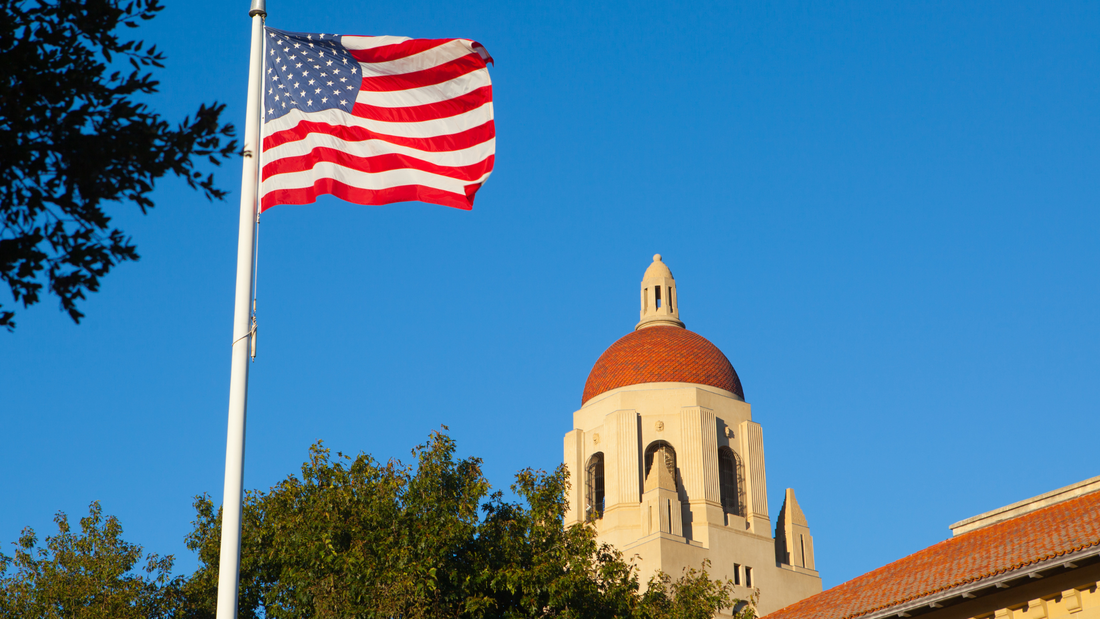



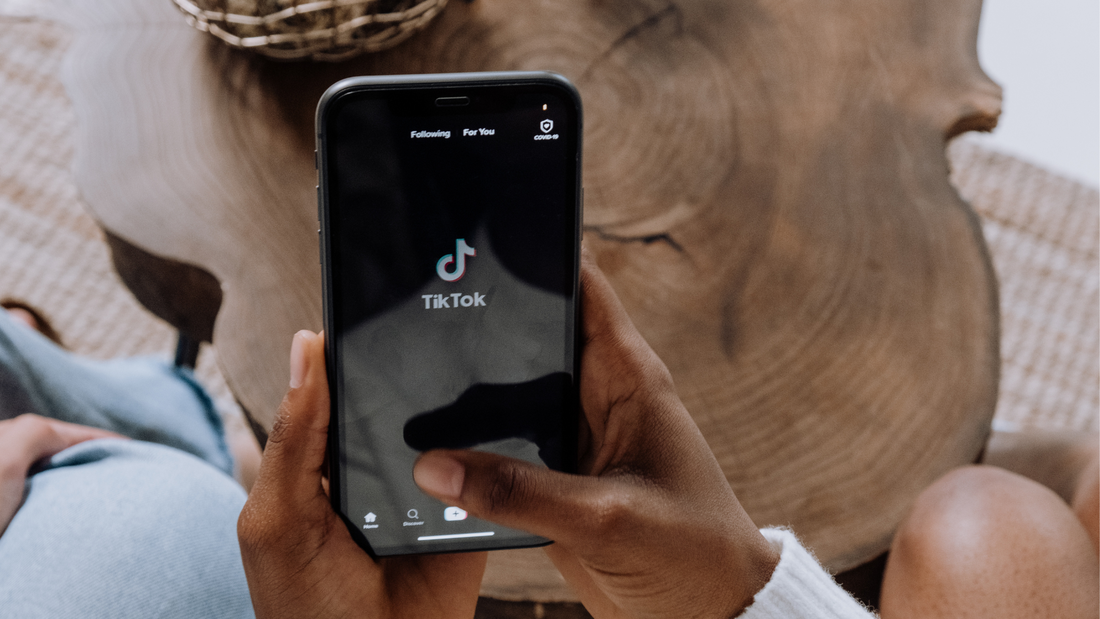
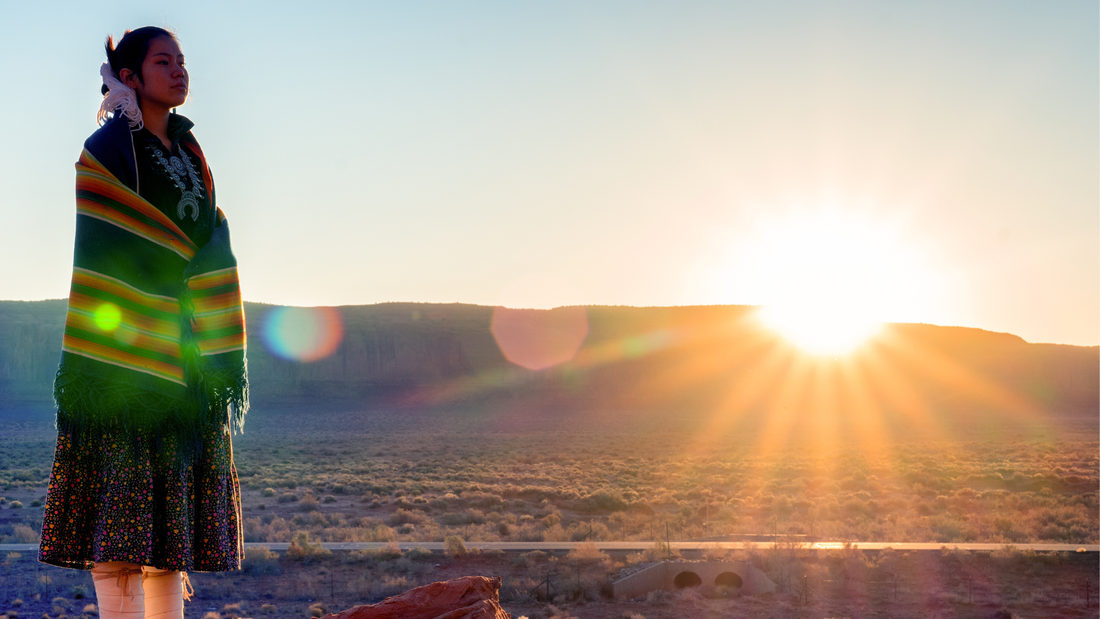
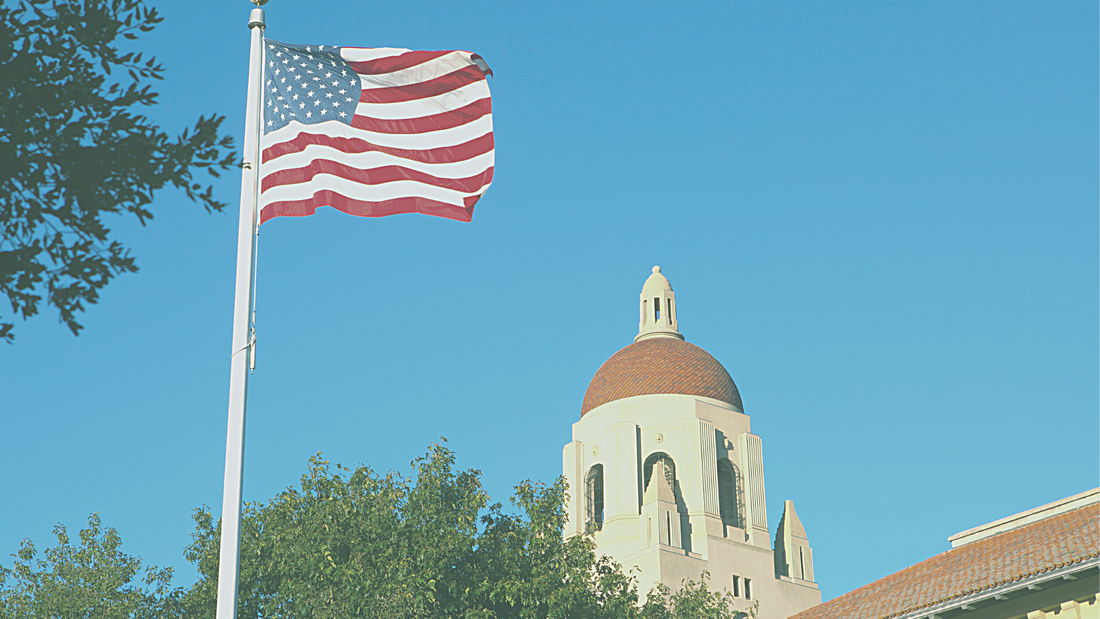

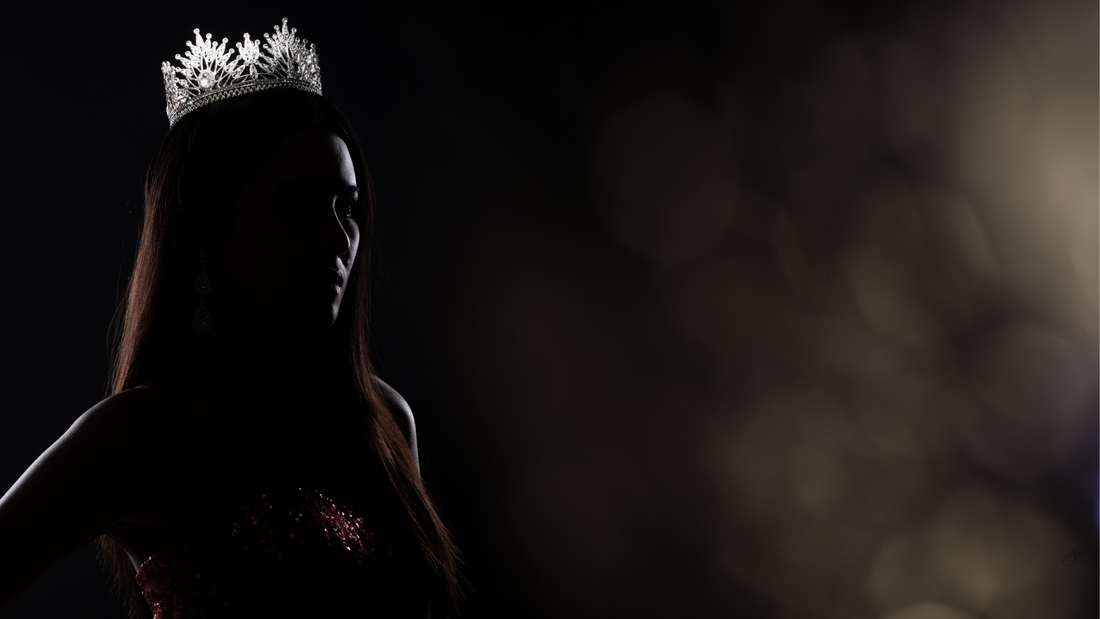


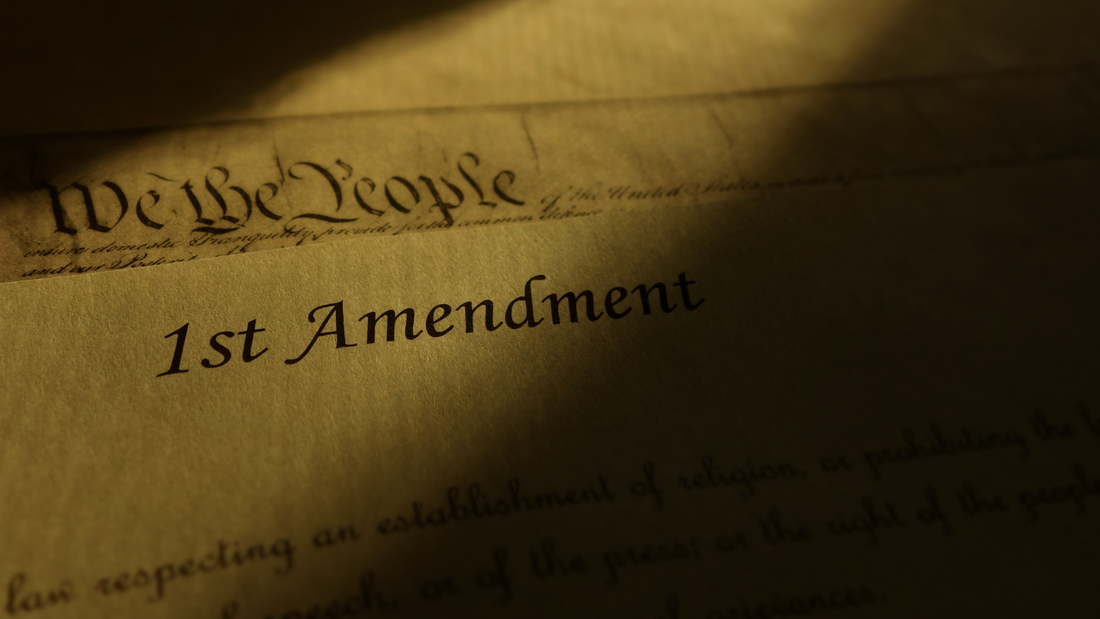


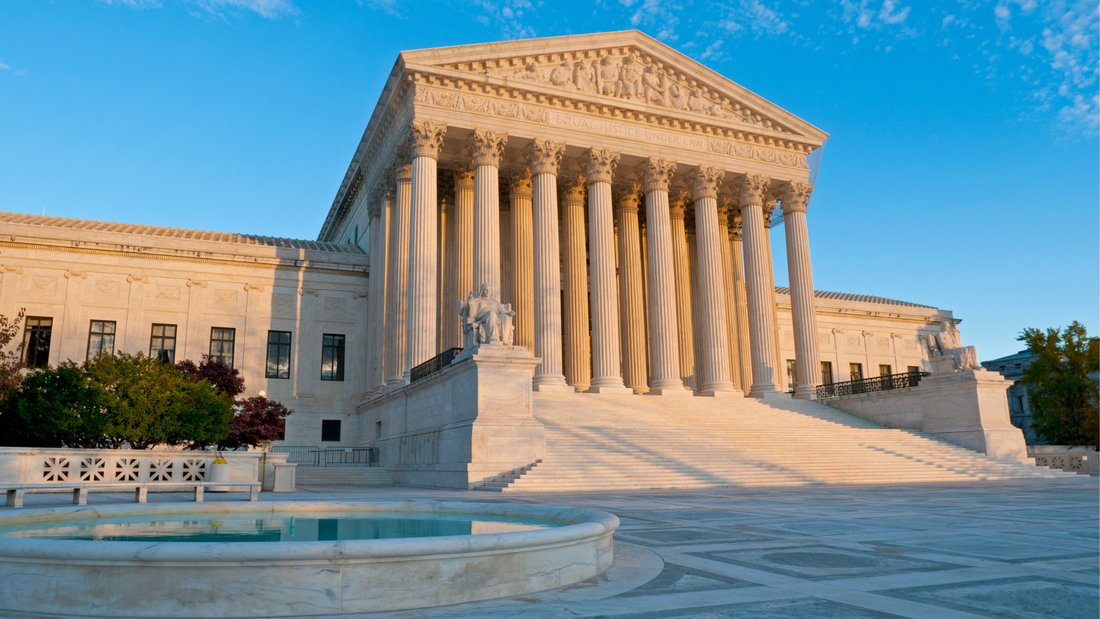

 RSS Feed
RSS Feed